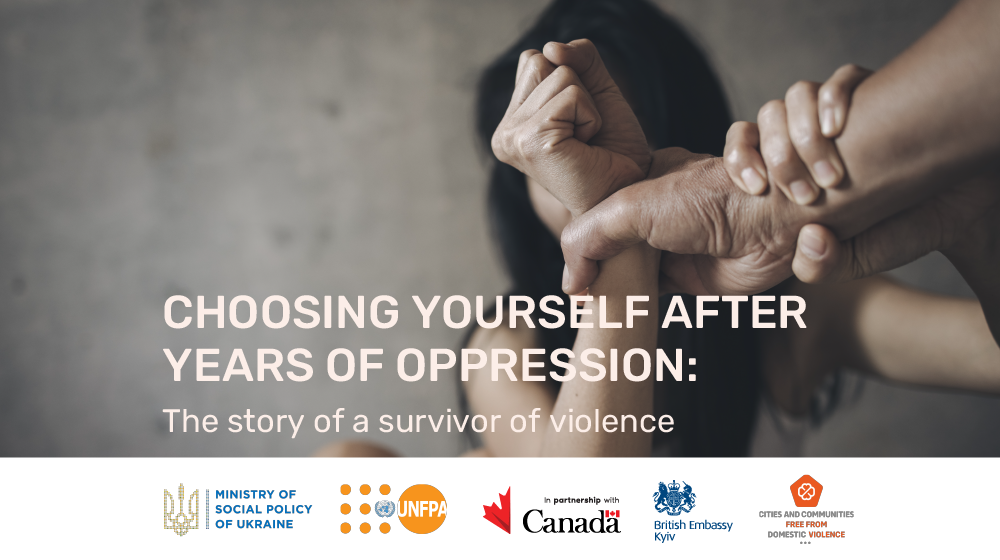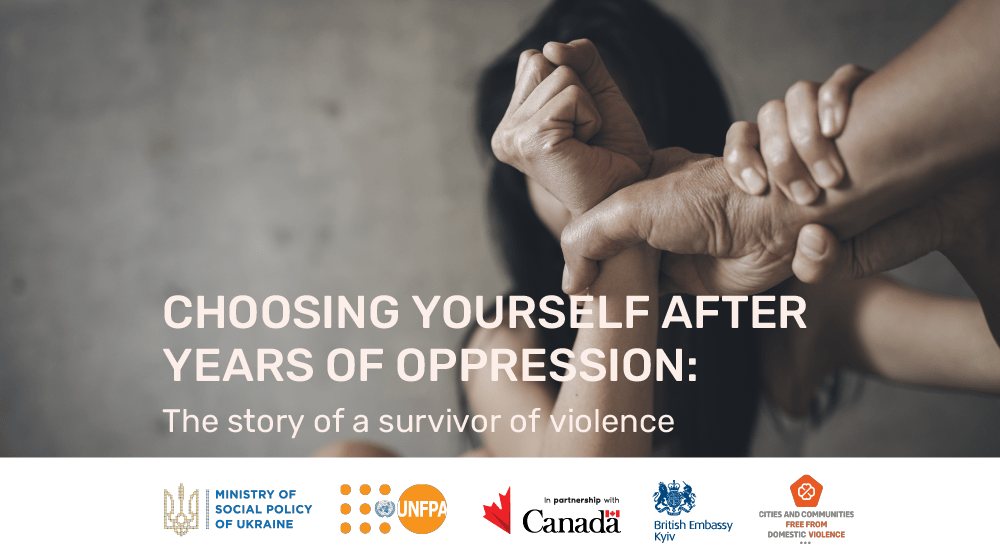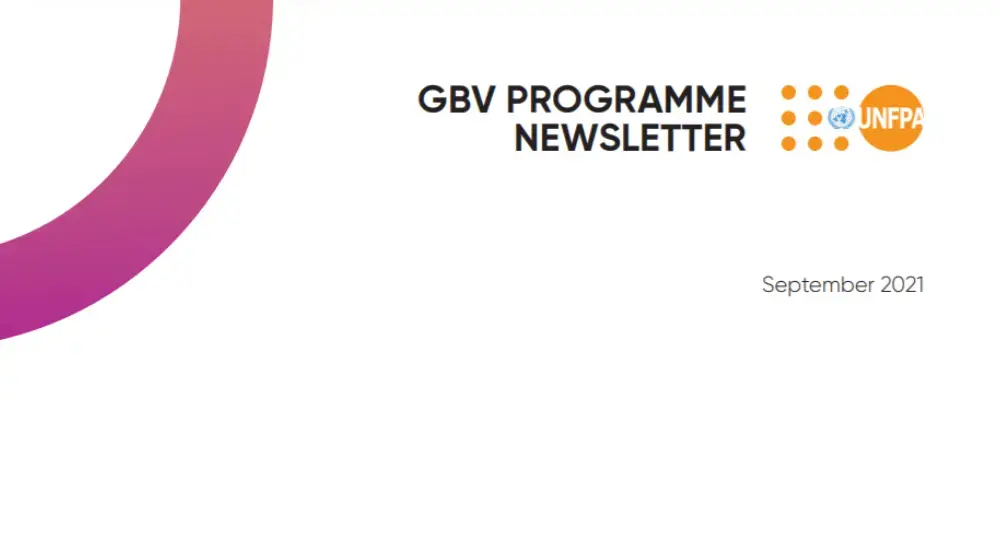It was only at the age of 32 that Maryna, a resident of Vinnytsia region, learned what it meant to choose her own path in life. For many years she had suffered constant restrictions, prohibitions, reproaches, and physical punishment from her mother-in-law and husband. Despite her fear of the unknown, she managed to break free.
According to Maryna, her husband's family changed their attitude towards her dramatically when she became pregnant. All her movements and actions were monitored. Her husband started abusing alcohol and raising his hand to his pregnant wife, with his mother only encouraging his behavior.
"My mother-in-law blamed me for his alcoholism, although it was me who suffered the most - he twisted my legs and arms and I was bruised all over. He could easily have thrown me off the bed when I was pregnant just because I had pulled the blanket over me," the survivor said.

After the birth of her daughter, the situation worsened: Maryna had to look after the household as well as the baby. When the girl was one year old, Maryna was deprived of the most precious thing - the opportunity to raise her. According to the survivor, her mother-in-law forced her to stop breastfeeding and took the child to live in her room, preventing Maryna from seeing her daughter.
"I only saw Khrystyna from a distance, when I was working in the yard or with the animals, and as soon as I approached her, a conflict would start. The child cried and asked for her mother, but they said she would cry a little and stop. But I would still sneak up to her,' says Maryna.
The husband's relatives forbade the girl to go to kindergarten, and Maryna's mother-in-law's child-rearing methods were cruel, she says.
For the slightest disobedience, the child was locked in a dark cellar or bathhouse, made to 'fear spiders' or eat near the toilet. From the time she was a toddler, the girl was forced to do housework.
"If she failed, she was beaten. The sons of my husband's sister were persuaded to beat her constantly. She was always blamed for whatever happened, whereas they were never to blame", Maryna says. "My husband used to beat Khrystyna so badly that my heart would explode". Maryna was also forced to physically punish Khrystyna, and when she refused, she was beaten instead.
Maryna repeatedly turned to the police and social services for help, but as she said, they did not believe her and sided with her mother-in-law. Several times, she withdrew her reports under pressure from her abusers. "Each time it got worse, they took revenge. I couldn't leave the yard, do anything for myself or my child without their permission," says Maryna.
She was also afraid to run away because the mother-in-law controlled all the family's finances, including the childcare allowance. The house, which Maryna inherited from her father, was also taken over by her mother-in-law.
The last straw came when Maryna was pressured to give birth to a second child, which she was not ready for under the circumstances. According to the woman, the situation became absurd. Her mother-in-law forced her to have sex with her son and reacted to Maryna's refusal by screaming. At the same time, the man tried from time to time to take the survivor by force, but she resisted.
Maryna escaped this horror by chance. One day the son of her husband's sister broke his arm and the relatives took the child to the hospital in Vinnytsia. Left alone, Maryna called her mother, whom she had asked for help many times before, and told her that she was running away with her child. The next day, Maryna and her child Khrystyna ended up at the Vinnytsia Daycare Centre for Survivors of Domestic Violence. The center's staff placed them in the Crisis room.
"We had nothing, but they gave us everything we needed. I finally felt safe there. I could calm down with my child," Maryna said.
According to a specialist at the Daycare center who worked with the family, Khrystyna arrived very scared and cautious.
"She was like a little wolf cub who had a hard time adjusting, despite the safety of the environment. There was a sense that the trust between her and her mother had broken down. But the psychologists were there for her and now it's much easier for the girl to communicate, and she's making new friends," the specialist said.
In addition to psychologists and social workers, the woman was referred to secondary legal aid, where she received help with the complete set of documents needed to bring her abusers to justice, divorce and obtain alimony. However, only the woman's husband was punished for domestic violence. His mother has not been prosecuted.
Specialists involved the woman in various partner activities aimed at rebuilding deep trust with her daughter.
"Within a month, we could see the results. Their communication leveled out. Khrystyna started to hold her mother's hand. At first, she didn't react to her at all," says the specialist.
Now Maryna and her daughter are living in a rented room in a student hostel, not far from her mother's home. The woman has found a job on her own, and Khrystyna studies at home because her mother is afraid that her husband will find them. The woman still shudders at unexpected phone calls, but compares her past and present lives like chalk and cheese.
"I feel so calm - I don't have the anxiety I used to have all the time. I am finally free to do what I want, to take care of my child, to take care of myself, to go to work, to the playground, to the psychologist, and to enjoy that freedom," says Maryna.
Having finally gained the ability to manage her life independently, she is open to new things as she tries to make up for the years she lost living under the yoke of her abusers.
The work of the crisis room and the daycare center for social and psychological support is made possible by the ‘Cities and Communities Free from Domestic Violence’ project. The project is being implemented in cooperation with the Ministry of Social Policy of Ukraine with the support of the governments of Canada and the United Kingdom as part of the UNFPA program on preventing and counteracting gender-based violence.



